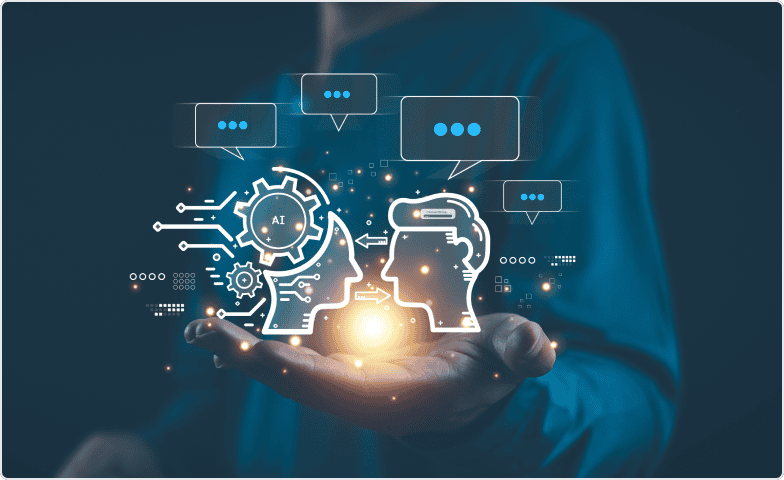
The Role of AI in Recruiting
Explore how AI is changing recruitment: its benefits, challenges, and impact on the future of hiring.
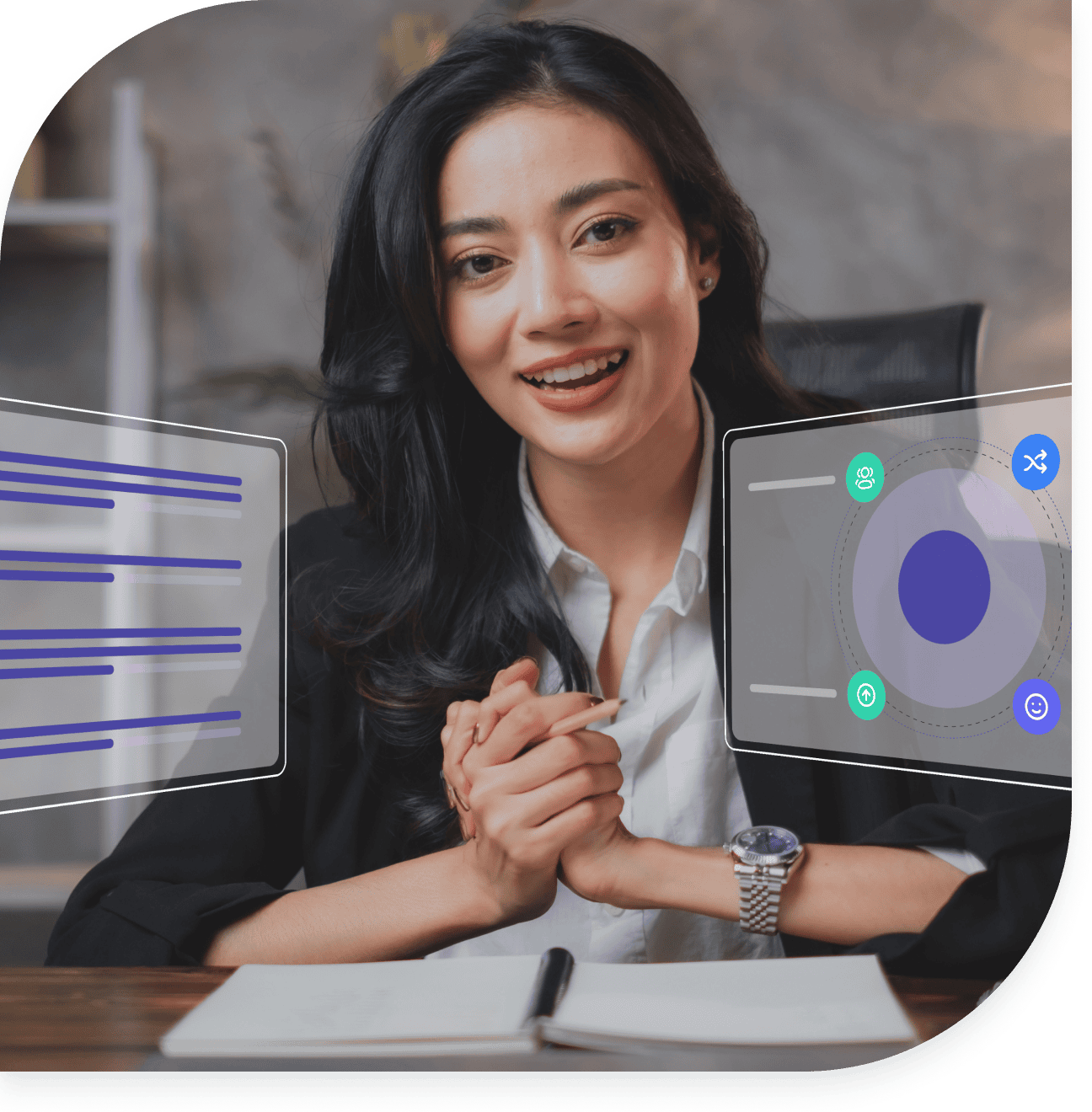
TL;DR: AI Interviews: The Future of Recruitment?
Artificial Intelligence (AI) has become a popular tool in modern recruitment, and interviewing is no exception. An AI interview is a structured interaction between a potential employer and a job applicant where AI technology facilitates, aids, or directs the assessment of the candidate’s suitability for a specific position. From chatbots to interviewing software, AI interview notes and other tools help recruiters increase efficiency and productivity by automating and streamlining many facets of the interview process.
AI Interviews and the Regulatory Landscape
The use of AI for employment assessments, in consideration for both hiring and promotions, is designated as a high-risk activity by many regulatory bodies. The European Union (EU) and the Canadian government are all closely monitoring its use with the intent to regulate.
AI interviews are an evaluation method that uses AI technology during the process. These interviews come in two primary forms:
Interview Intelligence: An alternative to AI-powered assessments
Many talent and recruiting intelligence platforms use AI to analyze candidate video interviews and screen candidates, but some experts question the ethics and validity of this application of AI. Instead, interview intelligence uses AI to improve the interview process by automating administrative tasks or providing real-time guidance.
It is important to note that not all AI used in interviewing is focused on candidate assessment. When it is, the process usually starts with a one-way video interview, where candidates record themselves answering questions delivered by the system. These questions could cover various topics, such as professional accomplishments or why their background fits the job. It's not simply an interview with an AI robot; it can be a sophisticated approach that analyzes multiple factors to assess a candidate’s suitability for the role.
Once the candidate completes the video interview, machine learning and natural language processing algorithms can analyze various aspects of the candidate’s responses, such as tone, word choice, body language, and even facial expressions, depending on the tool. Based on this analysis, the AI generates a score to assess the candidate’s fit for the company and the specific role.
The AI tool will then compare the candidate’s profile to data from previous hires or synthetic profiles of theoretical candidates to predict an applicant’s fit for a job. The software may also offer recommendations on their top candidates.
Some AI platforms can even automatically reject a candidate on the spot or move them forward to the next phase of the recruitment process. However, using AI to make hiring decisions can be incredibly risky from a public relations, ethical, and legal standpoint.
For example, AI interview assessment tools have made decisions based on unfair or irrelevant factors, like a candidate’s vocal intonation, different video backgrounds, or accessories like glasses. Furthermore, gathering sensitive candidate and employee data through a third-party system like an AI interview tool raises concerns about the collection, usage, storage, and consent related to this information.
Interview AI can also be used to support human interviewers in a more traditional interview scenario by providing real-time prompts, support, and analysis to the interviewer. This can enhance the human-led decision-making process.
This support can come in the form of interruption warnings and talk-time ratios to help the interviewer maintain a fair and consistent process.
Moreover, AI can reduce unconscious bias by offering data-driven insights, allowing interviewers to make more objective decisions. However, it's essential to maintain a human-centric approach, as AI cannot fully grasp the nuances of human interaction and the subtleties of emotional intelligence.
Implementing AI in this supportive role requires careful consideration of ethical implications and data privacy concerns. Organizations should transparently communicate how AI is used in the interview process and ensure compliance with regulatory standards. Ultimately, AI should augment the interviewer's capabilities, not overshadow the human element crucial to understanding a candidate's true potential.
Pre-recorded video vs. AI interviews: what’s the difference?
Pre-recorded interviewing solutions and AI interviews are similar but not the same. In pre-recorded video interviews, candidates record answers to set questions, which a hiring manager or recruiter reviews later. While AI may assist in scheduling interviews or selecting interview questions, AI is not a feature of all pre-recorded video interviews.
With their data processing and automation power, AI interviewer tools are dramatically changing how companies find the right candidates for the job—and we don’t know yet if it’s for the better. Here are some of the key advantages they can offer employers and job seekers.
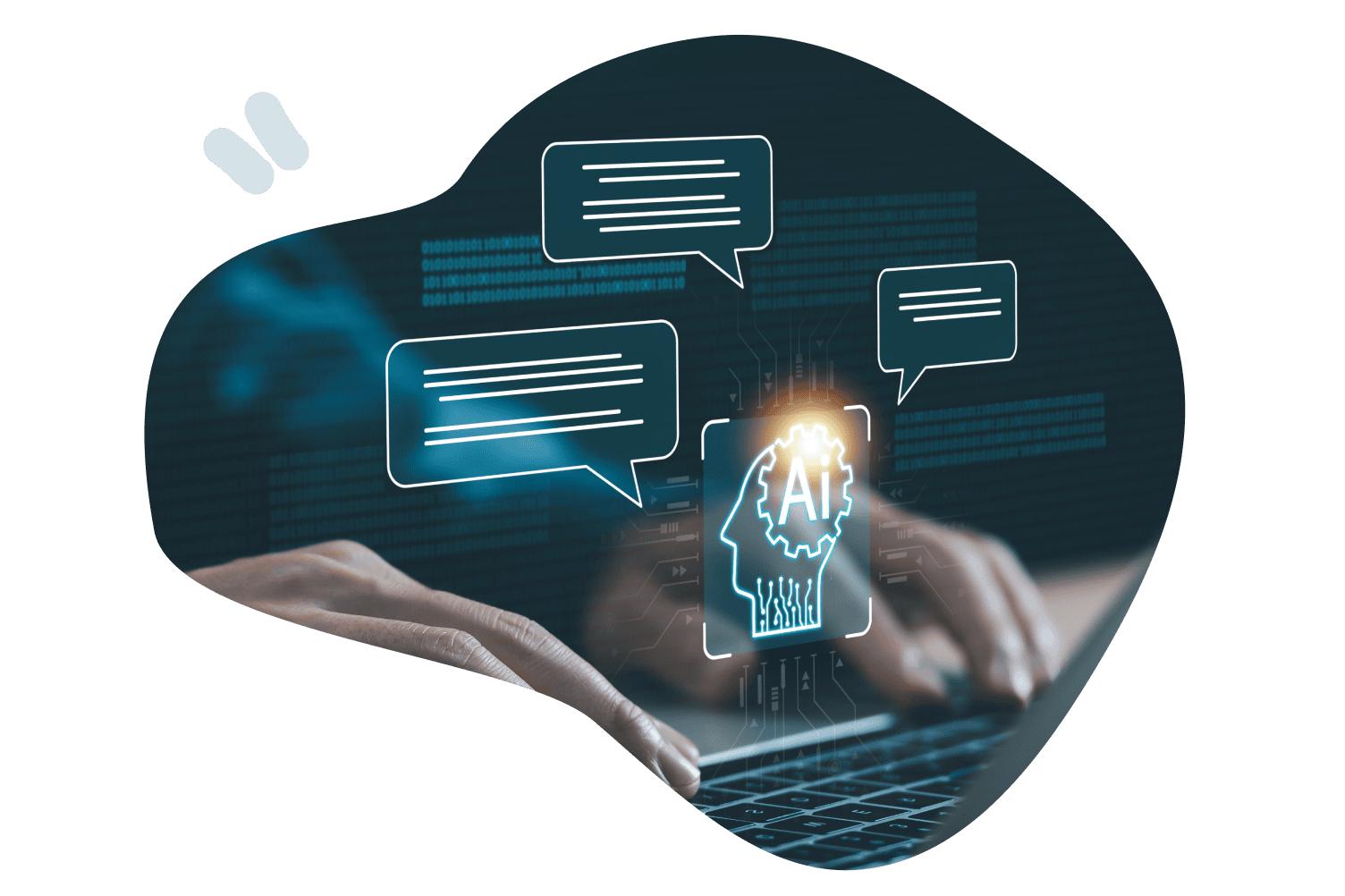
AI interviews speed up hiring by quickly reviewing numerous applicants, automating the interview process itself, and assessing candidate fit. Plus, since AI interviews are virtual and automated, companies can conduct them anytime, making scheduling hassle-free.
AI efficiency, by the numbers
According to a SnapLogic report, over half of the people who use generative AI at work save about one to five hours weekly. And around a quarter of them (24%) save even more—between six and 10 hours per week. More specifically, a McKinsey & Company report found that AI-powered hiring tools can improve hiring efficiency by up to 20%.
AI tools often claim they can help manage and reduce the impact of subjective biases that may arise with human interviewers. However, bias can still be present and significantly affect the process, as these systems are trained on curated data sets. For example, a 2021 analysis of AI video interview systems found that nearly half (44%) of AI systems demonstrated gender bias, and over a quarter (26%) displayed gender and race bias.
AI tools can sift through large amounts of data and use it to generate detailed candidate profiles for recruiters to review, analyze, and compare against employee data. These capabilities can theoretically help companies predict future job performance more accurately. A Harvard Business Review study found that 46% of companies using AI in their processes are doing so out of a desire to improve screening and assessment processes. It is important to note that this is a perceived improvement and has yet to be validated.
Despite their promises of increased efficiency and hiring accuracy, using AI in recruiting, particularly for interviews, comes with serious challenges and criticisms. From security risks to the loss of human connection, here are some key obstacles to consider with this emerging technology.
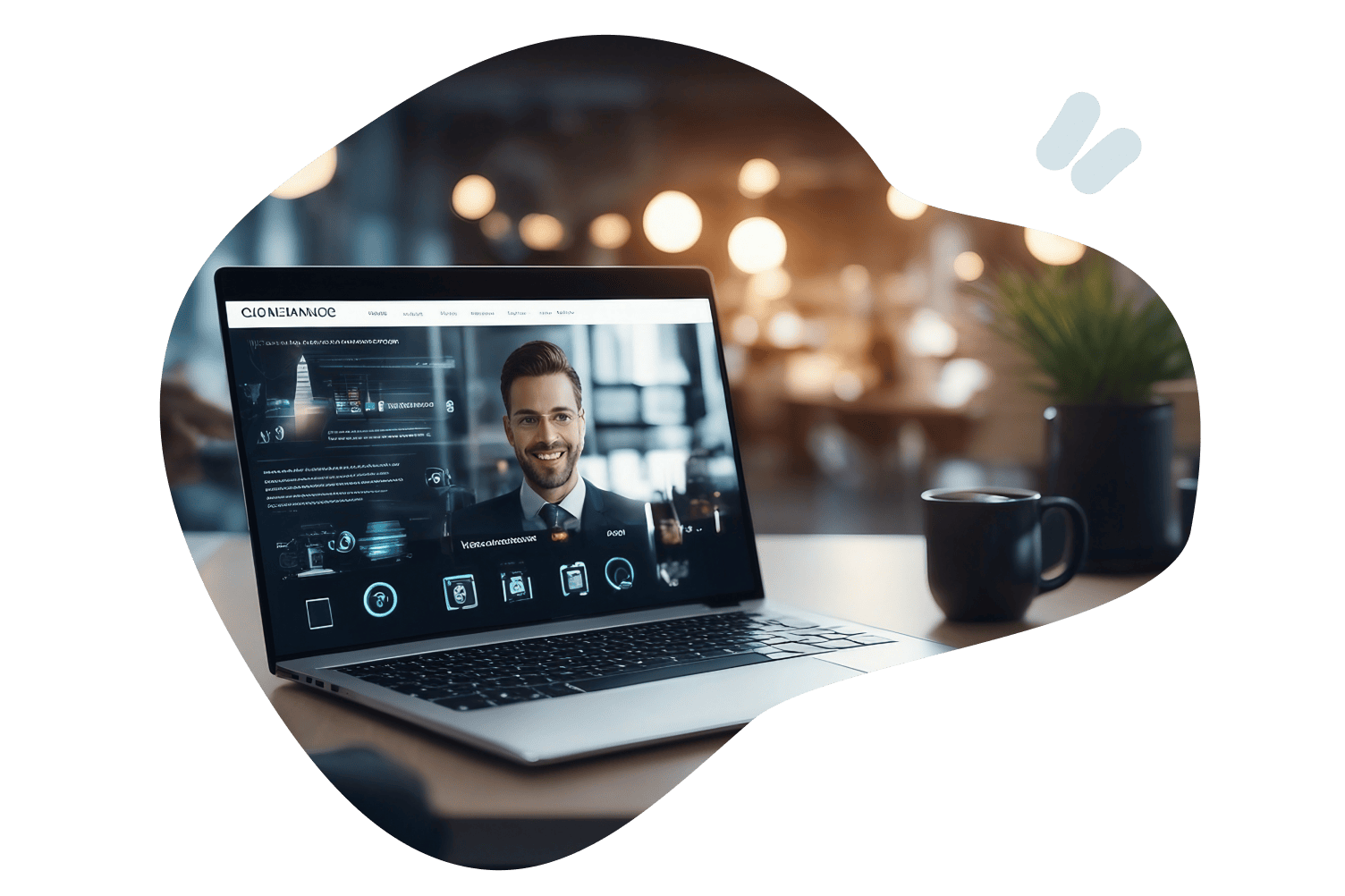
AI technology relies on set rules and data patterns, which means it might miss subtle cues like tone of voice or body language. Also, AI does not understand emotions as humans do, so it may struggle to grasp nuances like sarcasm, humor, or empathy.
Cultural differences and individual communication styles may also confuse AI. For example, many systems struggle to interpret heavier or less common accents, which means they could miss important details or make mistakes when assessing candidates.
With AI having access to sensitive candidate and employee information, there’s a risk of privacy overreach and surveillance, which could damage employee trust and lead to serious legal issues.
To protect privacy, organizations using AI interview tools should have robust data protection policies, only collect the information they need, and prioritize employee and candidate consent and control.
Illinois is leading the way for AI video interview regulation
In 2020, Illinois passed a law that requires companies to inform applicants when they use AI tools. They also must explain how the AI works, get consent, keep their information private, and delete it if the applicant asks.
Unlike face-to-face interviews, where you can pick up on social cues, some AI interviews have candidates talking to a chatbot or conversational AI. Ironically, these attempts to simulate a human interaction often have the opposite effect.
This can lead to an “uncanny valley” effect that can make for an uncomfortable and even anxiety-inducing experience when someone realizes they are interacting with an entity that closely resembles a human but is noticeably not.
Consider the potential negative impact on the candidate experience. Job hunting can be stressful for applicants, being judged by a computer instead of a human during such a critical moment could turn potential candidates away from your company for good.
A study by the American Staffing Association indicates that 49% of employed job seekers perceive AI recruiting tools as more biased than human interviewers. If candidates believe that AI tools are being used in clumsy, opaque, or irrelevant ways, this perception can further erode their trust in a fair and transparent hiring process.
As AI tools become more widely deployed, it’s critical that hiring managers work to increase transparency and accountability in their hiring processes and use tools that meet current and emerging anti-bias standards. It’s also critically important that policymakers and technologists thoughtfully consider measures intended to lower bias in AI hiring systems.
Richard Wahlquist
CEO - American Staffing Association
While all these interviews involve AI to some extent, the interaction format, communication channels, and level of AI involvement and analysis vary widely.
AI-assessed asynchronous video interview
An interview where job seekers record their responses to preset questions using a computer or mobile device. An AI system then analyzes and scores responses. However, we highly caution against relying on AI for unchecked decision-making, as the tools could perpetuate hiring biases or draw invalid conclusions.
Ai-assessed transcribed interviews
Can be similar to the AI-assessed video interviews but this type uses transcription and semantic analysis to analyze candidate responses to offer additional insight. Challenges like contextual misinterpretations and transcription accuracy, measured by Word Error Rate (WER), can compromise its reliability.
AI-led telephone interview
A telephone conversation between an AI-powered system and a job candidate. The AI system asks questions and evaluates responses using natural language processing technology.
AI Chatbot or Avatar-led interview
An interview where applicants engage with AI robots, chatbots, or avatars through text or voice messages. These AI entities ask questions and collect responses, which a human recruiter can review to determine the candidate’s fit for the role.
Real-time AI analysis during live video interviews
A live video interview between a candidate and a human interviewer where AI technology analyzes various aspects such as tone of voice and language. Some AI tools also analyze the candidate’s facial expressions, but many software providers are moving away from this practice due to ethical and legal backlash.
When used to analyze the interviewer, however; interview intelligence can provide useful feedback for an organization by focusing on the interviewer’s behavior. This can provide insights like sentiment analysis, talk time ratios, and interruption warnings to guide interviews towards best practices, enhancing the overall effectiveness of the process.
Most AI interviewing tools assess candidates’ video submissions based on semantic and verbal data (i.e., the words they use and how they speak). Some more advanced platforms also evaluate personality traits, like openness, conscientiousness, and agreeableness, often using metrics similar to the Big Five Personality Test. The AI will then analyze candidates’ responses to compare these traits to what the company wants for the job, providing scores to indicate compatibility.
Now that you know what the tool will judge you on, here are some AI interview preparation tips.
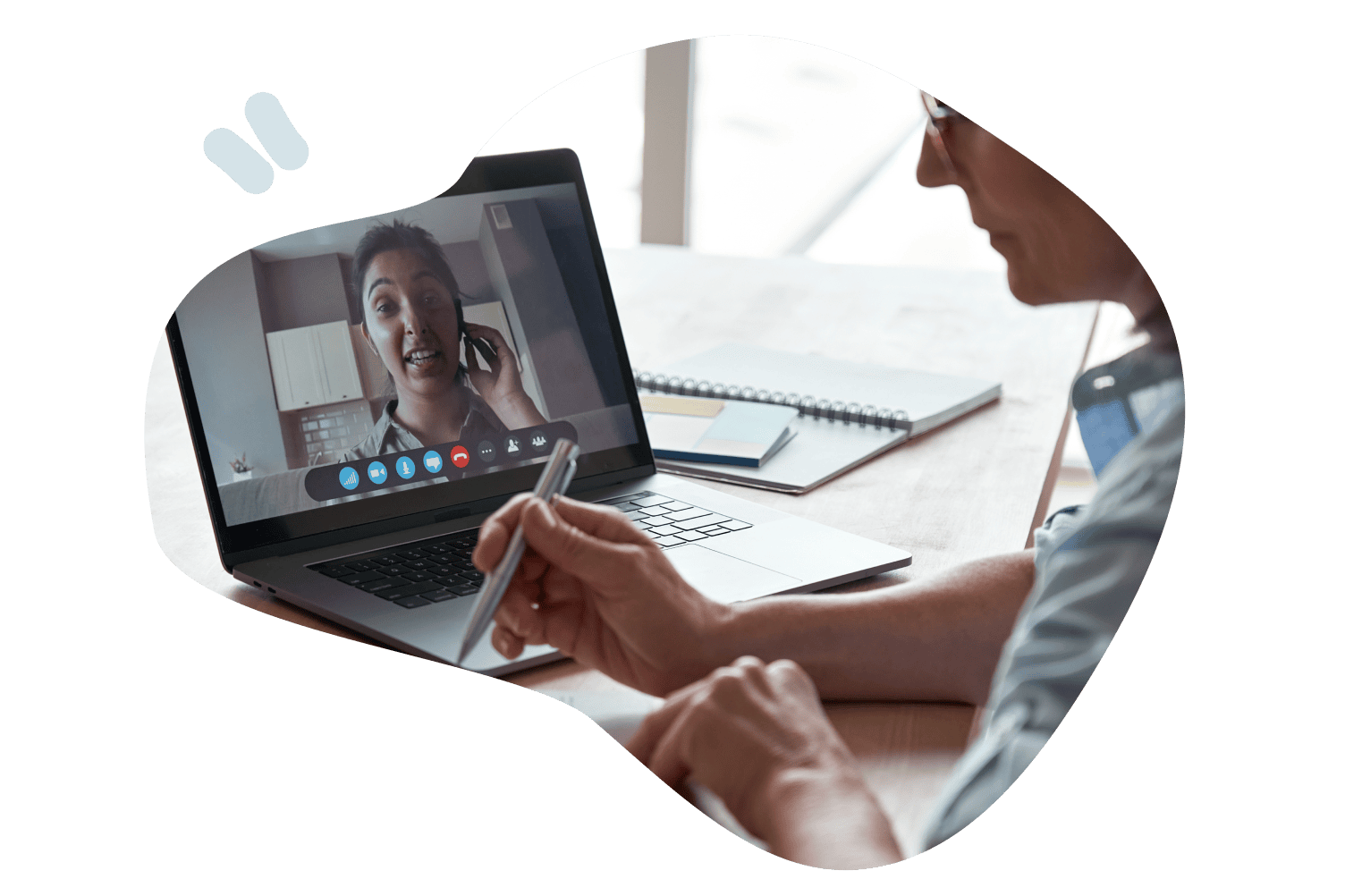
An AI interview can feel strange—like chatting with someone over video without seeing their face. This lack of human interaction sometimes leads candidates to unintentionally mimic the AI and appear more robotic, which you want to avoid.
Acting naturally, even though it may feel awkward, is key to leaving a positive impression. Maintain eye contact with the camera, smile, and speak clearly and expressively. You want to appear confident and friendly.
Start by having a friend ask you questions over a video call with both cameras on. This way, you will feel more comfortable since you are chatting with a real person. Then, try the same thing with the cameras off. Record yourself each time and see what you did well.
Finally, go solo and ask yourself questions while recording for an AI mock interview. This will help you get used to talking to a screen and let you see how you come across. Remember, the more you practice, the more confident you will feel during the actual interview.
Like any job interview, you should research the company and read the job description closely beforehand. However, with an AI interview, note any keywords or phrases you find and incorporate them into your responses. Jot them down in a notebook or a readily accessible document so you can quickly refer to them if needed.
Your interview setup should look like a professional workspace. Choose a spot with a neutral background, good lighting, and clear audio. Also, test your video and audio settings on your computer to ensure your tech is working smoothly. Lastly, present yourself as you would for a virtual or live interview. Maintain eye contact, speak, dress, and act professionally.
AI technology is revolutionizing job interviews and is showing no signs of slowing down. Today, it’s not uncommon for applicants to complete an AI interview before meeting an actual person.
However, it’s important not to place too much power in an AI interviewer’s hands, so to speak. While humans can be biased and make mistakes, so can machines. However, with humans, bias tends to stay with one person and is easier to control. When bias is built into automated systems, it affects everyone in the organization and has much more widespread consequences. Plus, AI’s black box issue means we don’t entirely know how AI interview tools analyze and rank candidates.
The most responsible way to use AI interview tools is to ensure that your people are always in the driver’s seat. Currently, AI is best suited for tasks like interview scheduling, record keeping, process analysis, and compliance checks, but it should not make any hiring decisions without human oversight.
In an AI interview, candidates record answers to preset questions. An AI tool analyzes their responses against established criteria and gives them a score based on their suitability for the role. However, concerns exist about fairness, privacy, and security, as AI may consider irrelevant factors and gather sensitive data.
Talking to a camera or avatar instead of a person can feel weird, but try to act as naturally as possible. Practice with friends on video calls first, then try a mock AI interview. Research the company and job description to find keywords for your responses. Lastly, set up a professional-looking interview space with good lighting and clear audio.
AI interview tools analyze how candidates talk and what they say in video submissions. They consider traits like openness and conscientiousness, often using metrics like the Big Five Personality Test. The AI then compares these traits to job requirements, providing scores to show how well candidates fit the role.
Modernize your hiring process with expert insights and advice.